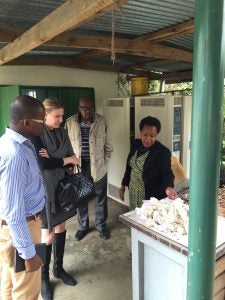Our Work
We provide a forum for researchers and scholars to engage in research, writing, and teaching around four key pillars:
 Development: linking economic and social development and international economic law
Development: linking economic and social development and international economic law- Labor and Women’s Empowerment: examining the impact of trade on labor, racial, and gender issues
- Environment and Climate Change: focusing on how trade can play a positive role in environmental and sustainable development
- WTO Institutional Reform and Governance: examining the contours of needed reform to the WTO rules and the WTO as an institution
Georgetown Law’s Center on Inclusive Trade and Development (CITD) was established to bring together scholars, students, practitioners, NGOs, business and labor leaders, and international organizations to find solutions to the challenges facing the international trading system and develop global approaches to making trade rules more inclusive and sustainable.
Today, the rules-based international trading system faces its most significant turning point in decades. Around the world, multilateral alliances are breaking apart, the WTO’s core mission of policing discrimination is out-of-date, and the forces that pushed the world toward globalization over the past 40 years are shifting. The COVID-19 pandemic has forced a reexamination of supply chains, while the need for the trading system to affirmatively contribute to the fight against climate change and the growth in income inequality has become truly urgent. Many countries and communities are also pressing for approaches that address historical biases and inequities and take into account a diverse range of state and individual needs. As the multilateral system comes under strain, new models for international trade law are emerging, particularly in the form of regional trade agreements (RTAs), shaping law in areas where the WTO has not been able to gain ground, such as sustainability, digital regulation, gender equity and more sustainable investment regimes.
Understanding how we get from where we are today to a future rules-based trading system that addresses the implications of trade rules for development, for the environment, for global health, and for labor rights will be the core of the CITD. Our work engages both a top-down approach that examines international trading systems and how they can be reformed and revitalized to meet these challenges and a bottom-up assessment of what women, workers, farmers, and small enterprises (MSMEs) need to ensure their full and fair participation in the global trading system.
